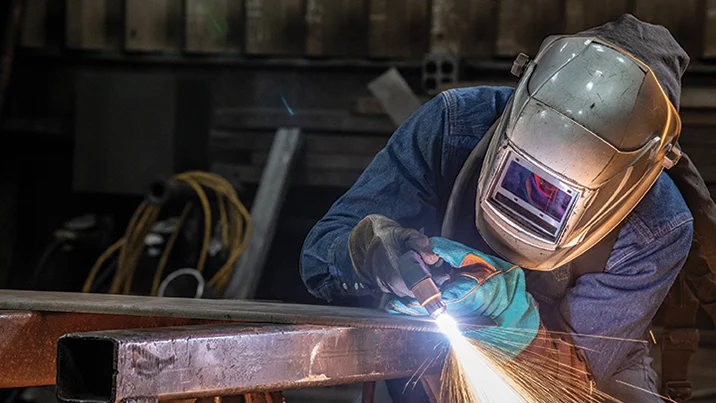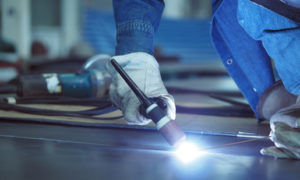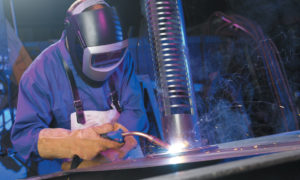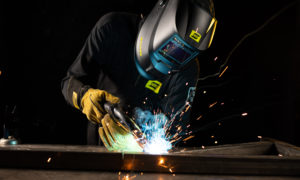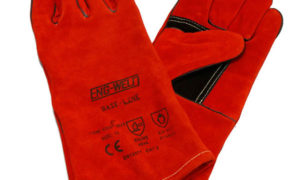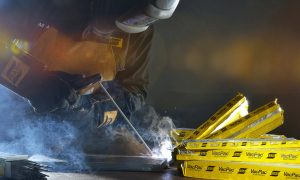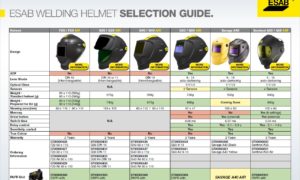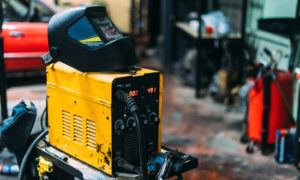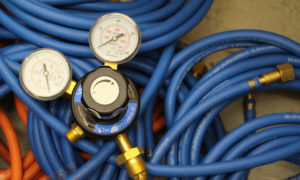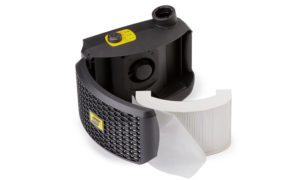What is a plasma cutting machine?
A plasma cutting machine, also known as plasma cutter, is a machine which funnels inert gas into a jet that is used to cut through metal. The gas forms a high-temperature arc that is struck between the work piece and the electrode.
Can you cut stainless steel with a plasma cutter?
Yes, plasma cutters can cut stainless steel. They can cut any metal that can conduct electricity.
Can you cut aluminum with a plasma cutter?
Yes, a plasma cutter is capable of cutting aluminum.
Can you plasma cut galvanised steel?
While you can cut galvanised steel using a plasma cutter you need to be aware that it can produce toxic fumes, so having an excellent air filtration system in place is highly recommended.
What can Plasma Cutters cut?
For plasma cutters to work properly, they need to have conductivity to complete the electrical connection.
Plasma cutters are capable of cutting any metal that conducts electricity. These may include metals such as mild steel, stainless steel, carbon steel, copper, brass, aluminium, cast iron, titanium, monel, inconel, and other conductive metals, cutting capacity can vary greatly depending upon the material.
What can Plasma cutters not cut?
Any non-conductive material cannot be cut using a plasma cutter. This means that materials like wood, glass, concrete, ceramic and plastic are not suitable. You may assume that this means plasma cutters can be used to cut all types of metals but this is not always possible.
Plasma cutters may struggle with some kinds of metal that are poor conductors of electricity There are many types of metal that are actually poor conductors of electricity which means that an arc cannot be formed. These include:
- Lead
- Tin
- Tungsten
In addition to these more common metals, there are also a host of exotic and rare alloys that cannot be cut. (Gallium, indium, thallium, ununhexium, ununpentium, ununquadium, and ununtrium). Some metals may not be able to withstand the heat involved in plasma cutting such as Lead which may splatter and create a hazard.
How thick will a plasma cutter cut?
It depends on the individual plasma cutter and the power it can offer. A typical handheld plasma cutter can cut up to 38mm (1.5 inches) thick steel plate.
Do plasma cutters need gas?
Yes, plasma cutters need gas to work and create plasma. There are various gasses that can be used for different applications depending on the type of material being cut and its thickness.
Does a plasma cutter need air?
A plasma cutter would need either air or gas. Hand plasma cutters mostly need air supply. Some plasma cutters come with built in air compressors and some come without it.
Engweld stocks external Air Compressors of various different shapes and sizes.
What size air compressor do I need for a plasma cutter?
It is recommended to use an air compressor with a flow rate at least 1.5 times higher than the consumption rate of the plasma cutter.
See our Air Compressors Buying Guide for more information.
What is the difference between laser and plasma cutting?
Lasers use the power of optical light to cut. Plasma cutting uses a gas supply, an anode and a cathode to produce a high-temperature arc.
How hot do plasma cutters get?
The arc of a plasma cutter can be in excess of 16,000 degrees Celcius. However, this is a localised heat source minimizing heat dissipation. Plasma also generates bright light which you should never look at directly. Therefore, when using plasma cutters you must take some basic precautions and make sure you wear a welding helmet or goggles with shade 5 lens, welding jacket, welding gloves, flame retardant welders trousers and appropriate footwear.
Engweld stocks a huge range of protection and safety equipment – click here
How much does a plasma cutter cost?
Plasma cutters supplied at Engweld range from £950 to £8,500. The general rule of thumb is that the more amperage a plasma cutter can produce the more expensive it will be. The more powerful they are the more thicker materials they can cut. However, there are a lot of other factors as well that play into the price of a plasma cutter. A quality plasma cutter will have good cooling, high cutting capacity, long consumables life, and consistent cut/gouge quality.

